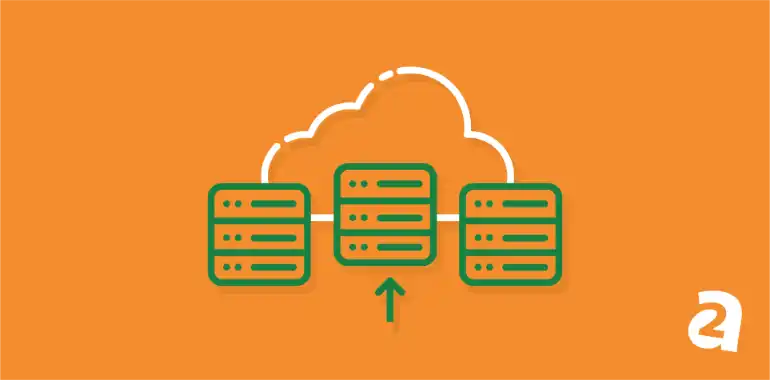- Apr 22, 2020
 0
0- by A2 Dev Team
In the world of database management software, MySQL remains king. However, there are a number of alternatives worth considering – including MariaDB. Like any software, MariaDB comes with various pros and cons, so it’s important to put in some research before making a switch.
After all, your chosen database management software will likely have a big impact on the way you operate. A clearer understanding of what each platform has to offer will ensure that you’re getting the best possible service for your site’s particular needs.
In this post, we’ll properly introduce you to MariaDB. We’ll then explore some of the reasons you might wish to use it over MySQL. Let’s get started!
An Introduction to MariaDB
If you’re a seasoned website owner, it’s likely that you’ll have encountered MySQL at some point in your career. Initially released in 1995, MySQL was created to provide efficient and reliable data management options to both home and professional users:

The platform has since gone on to achieve world-wide popularity, with several large businesses making MySQL their database management software of choice. However, this started to change after a new company bought the rights to the MySQL technology.
Many consumers were unhappy with the way the new owners handled the software. As a result, the original developers of MySQL ‘forked’ it in 2009, creating a new version that’s known as MariaDB:

This development caused many companies to ‘switch sides’, and move over to MariaDB instead. Among them was WordPress, the world’s most popular Content Management System (CMS). Google, Wikipedia, and Craigslist are also prominent MariaDB users, and there are many others.
The fact MariaDB is a fork of the original MySQL software means that there are numerous similarities between the two. Consider their database structure, for example. It’s almost entirely the same, which enables you to switch from MySQL to MariaDB with ease (without having to alter your application).
The relationship between these two platforms also means that:
- Client protocols, APIs, and structures are identical.
- Table and data definition files are completely compatible.
The MariaDB developers even do a monthly merge of their software’s and MySQL’s code. This all means that MariaDB functions as a natural replacement for MySQL, if you’re looking for an alternative.
3 Benefits of Using MariaDB Over MySQL
Since the two platforms are so similar, you’d be forgiven for thinking there’s no point in changing over from MySQL to MariaDB. However, the MariaDB data management software comes with some additional capabilities, and is worth at least checking out. Here are three of the most prominent reasons to make a switch.
1. MariaDB Offers Tighter Security Measures
Security is a major concern for any website owner. Hacking attempts are on the rise every year, and a breach can have serious consequences. As a result, it’s important to make sure that your database management software is properly secured.
The most recent MySQL update did include some new security-focused features. However, MariaDB comes with a much wider range of additional safety measures, including:
- Internal security and password checks
- PAM and LDAP authentication
- User roles
- Database encryption
The other unique selling point of MariaDB is its Role-Based Access Control (RBAC). This has been implemented into the system from version 10.0.5 onward, and eases the management of access rights. So far, MySQL has been unsuccessful at implementing similar features, making it somewhat more vulnerable.
2. Performance Is Faster and More Efficient
Your site’s performance is incredibly important – especially when it comes to loading speeds. For example, most users expect a website to load in less than two seconds. Failing to hit that mark could result in a high ‘bounce rate’ (the number of people who leave your site immediately), as well as numerous additional issues.
Although both MySQL and MariaDB are efficient, the latter has managed to take the lead in performance. This is due in part to its large selection of alternative database engines. In other words, when optimizing queries, MariaDB takes into account engine-independent table statistics.
The MariaDB website also offers a range of helpful resources on how to optimize performance further, as well as performance strategies for various queries. This includes system variables, buffers, caches, threads, database-type performance improvements, and encryption technology. For the lay person, this all means that MariaDB is a lot less likely to have a negative impact on your site’s page speeds (and may even have a positive effect).
3. You’ll Get Access to Better User Support
Whether you’re a beginner or an experienced user, it’s likely there will come a time when you need further support. Those who hold a license for proprietary MySQL products get access to Oracle Premier Support, which provides around-the-clock help.
The service offered by MariaDB is similar, but comes with the additional promise of a 30-minute maximum reaction time. This, coupled with a notification service, patches, and bug fixes, puts the platform’s user support slightly ahead of MySQL’s.
In addition, the MariaDB software is used by some of the world’s largest companies – including Nokia, Intel, and Samsung. Each of these clients (and more) have left glowing testimonials, which is another sign that you’ll be in capable hands.
Conclusion
Although MySQL and MariaDB are both effective database management solutions, there’s no denying that the latter leads the way in many respects. This is evidenced by the various large companies that have made the switch – including Google and WordPress.
Let’s recap three of the potential benefits that come with using MariaDB:
- Additional security features are included, making the platform more secure.
- The MariaDB software is faster, and may improve your site’s loading speeds as a result.
- You’ll get access to better and more available user support.
Image credit: Pixabay.












